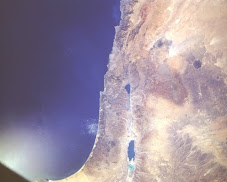
Israel’s Undiplomatic Diplomacy
Not that they are being treated like the Palestinians, but the United States and the EU - especially France under Nicolas Sarkozy - get more than a taste of Israel’s hostile “diplomacy,” says Alain Gresh.
Israeli police surrounded the French cultural centre in Jerusalem in December last year. Palestinian leaders inside were wanted for questioning. Last June, the director of the French cultural centre in Nablus was dragged from her diplomatic car, thrown to the ground and beaten by Israeli soldiers. One told her: “I could kill you.” During the offensive against Gaza in January 2009, the home of a French diplomat, Madji Chakkoura, was ransacked by Israeli soldiers who stole money and jewelry; “warning shots” were fired at the French consul general’s car. Catherine Hyver, France’s deputy consul in Jerusalem, was held for 17 hours in degrading conditions at a checkpoint on the Gaza strip in June 2008.
The reconstruction of the al-Quds hospital in Gaza, which Israeli prime minister Binyamin Netanyahu promised his “friend” Nicolas Sarkozy, remains on hold. Israel has blocked access to building materials, on security grounds. Maybe there’s a silver lining: It’ll be one less building to be destroyed in the Israeli army’s next offensive. Dozens of other construction and infrastructure projects part-funded by the EU have ended in ruins, such as Gaza’s international airport. The EU condemned its destruction in 2001 and announced that it would seek compensation from Israel. It’s still waiting.
None of the humiliations of diplomats has provoked a determined response from the French foreign office. It took the Israeli secret service Mossad’s use of French passports in an assassination operation against a Hamas leader in Dubai in January to provoke a timid summons from the ministry to the Israeli chargé d’affaires. But no cause for alarm -- that was as far as Paris took it.
The French government seems to be used to humiliation. During his visit to Israel in November 2009, the French foreign minister Bernard Kouchner agreed to meet his counterpart, Avigdor Lieberman, whose opinions would get him denounced as a fascist if he were Italian or Austrian. Kouchner declared that the construction of 900 houses in Gilo (Jerusalem) “wasn’t political and shouldn’t stand in the way of the resumption of talks.” He didn’t raise any objection to the ban on building materials for the reconstruction of Gaza’s hospital, a French-run project; nor did he protest about scholarship students from Gaza not being allowed to study in France. He was also silent on the difficulties faced by all foreign personnel working for NGOs in the Palestinian territories because of Israel’s new visa policy. Kouchner yielded to the diktat of the occupying authorities by dropping plans to visit Gaza.
His Irish counterpart Micheàl Martin, faced with the same ban in March 2010, had the courage to circumvent it by going through Egypt. After his visit he wrote: “The EU and the international community simply must do more to increase the pressure for the ending of the blockade and the opening of the border crossings to normal commercial and humanitarian traffic.”
But “increasing the pressure on Israel” is not in Sarkozy’s vocabulary. So what if the blockade of Gaza is ongoing, settlements spreading and negotiations stalled? Cajole Netanyahu and he will turn into a pacifist. In December 2008, on an initiative put forward by the French EU presidency, the EU decided to upgrade its relations with Israel. Soon after, the Israeli army launched the attack on Gaza. Sarkozy then downplayed the operation, claiming that Hamas had broken the ceasefire. But even the website of the Israeli foreign ministry, which monitored rocket attacks, showed that the ceasefire held until 4 November 2008, when the Israeli army broke it by launching its assault.
Gaza’s schools and thousands of other buildings cannot be rebuilt because of a ban on importing cement. Meanwhile the French ambassador in Israel, Christophe Bigot, has been pondering the use of the term “blockade” which, in his opinion, should be “in quotation marks, since after all, products are entering Gaza either through tunnels or through Israel.” Bigot, who sometimes seems to represent France in Israel and sometimes Israel in France, shot down a bold Swedish proposal for an EU declaration in December 2009. He explained in an interview: “First of all, the declaration should take into account Binyamin Netanyahu’s positive [sic] decision to partially freeze settlement building. We should salute his decision, even if it doesn’t meet all our expectations.”
Not only is settlement building ongoing in Jerusalem, it is only limited (for 10 months) on the West Bank, where Israel will continue with the construction of 3,000 homes. In 2009 the settler population there grew by 10,000, taking it over the 300,000 mark. And rather than give instructions against the illegal entry of products from the occupied territories on the French market, as EU legislation demands (confirmed by the European Court of Justice in a judgment on 25 February), France prefers to pursue the promoters of the Boycott Disinvestment Sanctions (BDS) campaign. A dispatch to the administration of criminal affairs from the ministry of justice on 12 February urged public prosecutors in the appeal courts to organize a “firm, coherent response to these dubious actions” and to take into account the “execution of present instructions.” So much for the independence of the judiciary.
Kouchner called the Swedish proposal “dangerous and disproportionate when Israel has just made a major concession by ordering a temporary halt to colonization.” Paris managed to get the proposed text watered down so that there was no mention of East Jerusalem as the capital of the Palestinian state, but only of Jerusalem as capital of two states, and the idea of sovereignty of the Palestinian state disappeared in favor of that of “territorial continuity.”
The former US Secretary of State Henry Kissinger defined the negotiating principles of Israel’s government in the 1970s, saying that if “you agree with them only 95%, you’re a dangerous anti-semite.”
There are many such accusations leveled against President Barack Obama who, rather than change US policy, has changed its discourse. The crisis caused by Vice-President Joe Biden’s visit to Israel in March (he likes to say that you don’t have to be Jewish to be a Zionist) and the slap in the face he received with the announcement of the construction of 6,000 more settler homes in Jerusalem seems to have abated. But it shows how little heed Tel Aviv pays to its US patron.
A group of officers from US Central Command, responsible for US military policy in the Middle East, in particular in Iraq and Afghanistan, delivered a stark message to the Pentagon in January: The policy on Israel is weakening the US position with its moderate Arab allies; the president’s special envoy in the Middle East, George Mitchell, is “too old, too slow… and too late.” Biden told Netanyahu, according to the US press, that his policy was putting American lives at risk in Iraq and Afghanistan and fuelling the rhetoric of the jihadists.
Neither the Pentagon’s position nor the humiliations by Israel seem to have affected Obama’s policy. Even the resumption of indirect negotiations between the Palestinians and the Israelis probably won’t have any concrete effect. As Robert Satloff, the director of the Washington Institute for Near East Policy, a think tank linked to the pro-Israeli lobby, put it: “it is still important that the administration create a functioning diplomacy between Israelis and Palestinians -- not because serious observers believe a near-term breakthrough is in sight but because an active and ongoing diplomacy denies both critics and naysayers an opportunity to make mischief. Furthermore, it frees the Administration to inject international urgency into the Iran issue.”
Put more simply: Play to the gallery with your “peace process” while preparing for war with Iran. Afterwards you can square things with the Palestinians. It’s the same language that Israeli leaders have used for decades; only the enemy changes – Egypt, Iraq, and now Iran. That Obama wants to find a solution, much more than the Israeli government, is not in doubt. The question for the EU is how it can contribute to this.
In June 1980 the EU adopted the Venice declaration. Ratified notably through the efforts of France, it called for the recognition of the legitimate rights of the Palestinians, confirmed Europe’s rejection of settlement activity and any initiative that aimed to change the status of Jerusalem, and called for the inclusion of the PLO in talks. The declaration was immediately rejected by the United States and the Israeli government, which denounced the inclusion of “Arab SS” in the peace process. In 1993 the Israeli government recognized the PLO; Europe had paved the way. But that was another epoch, when France was still bold enough to have a foreign policy. --
Alain Gresh is editor of Le Monde diplomatique and a specialist on the Middle East.




